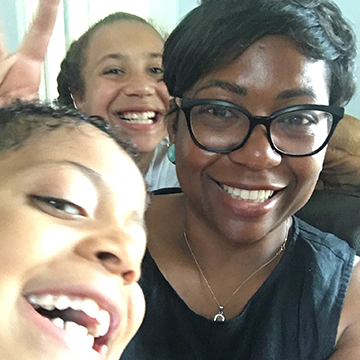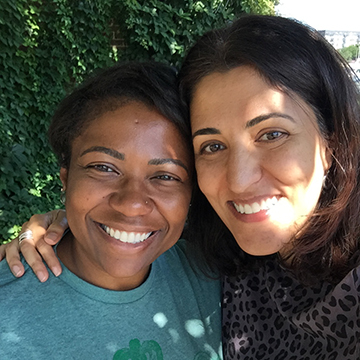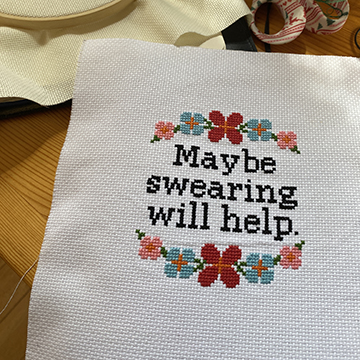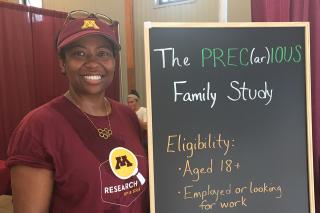Where did you go to college, and what did you study?

I attended the University of Minnesota — Twin Cities. I'm from Chicago, Illinois, and Minnesota was far enough from my large extended family to have some freedom and to practice self-sufficiency, but close enough that I could go home if I really needed to. I went to college planning to become a pharmacist.
In the end, I graduated with a BA in English and a BS in human resource development. I stayed in Minnesota and earned an MEd, MSW, and PhD. If you can guess, I really liked school.
Tell us about your role at Simmons.
I’m a new Assistant Professor in the School of Social Work. This semester, I'm teaching SW 354 - “Social Work Practice IV - Macro Level Social Work” at the undergraduate level, and an MSW course, SW 411 - “Human Behavior in the Social Environment.”
Do you have a favorite course you teach?
It's too early in my Simmons career to have favorites, but I’m really enjoying my undergraduate course, SW 354 - “Social Work Practice IV, Macro Social Work.” I identify as a community-practice social worker — I love being in the community working to change oppressive systems, structures, and attitudes, and I love teaching this content to new social workers.
What's your favorite thing about Simmons?
My favorite thing about Simmons is the strong sense of community and pride expressed across the University! I came from a large and often impersonal institution, and right away, Simmons made me feel like I was an integral part of our community.
What inspired you to work in social work and academia?

I knew I wanted to be a social worker when I was preparing to graduate with my undergraduate degree, but so many people persuaded me to go a different route because of the stigma attached to social work, namely compassion burnout. Instead, I worked in HR as a trainer, which I enjoyed — but like I tell my students, you can't train people out of poverty unless you also tackle the systems and structures that keep people impoverished and oppressed.
In my MEd program, I took an MSW course as an elective — "Human Behavior in the Social Environment" — the same class I'm teaching now, and I felt like I had finally arrived at my professional home! I finished my MEd and immediately started planning to get an MSW. After earning my MSW, I started my dream job as an Outreach Program Director, where I was the liaison between community partners and researchers and interventionists who wanted to collaborate with community partners.
I love working with communities and in community, but I missed training, or rather, teaching. I was also still very interested in employment and work-family policies. This is an understudied topic that is often missing community voices, and the experiences of marginalized workers are usually excluded from policy decision making on work-family issues. And frankly, there just aren't many professors who also identify as African American in academia. If I could handle the rigors of academia to help inspire other BIPOC students to diversify the academy, I wanted to be a part of that movement.
Is there any research you've been conducting lately?
I’m actively engaged in my research project, The Precious Family study. I’m examining patterns of precarious work factors — such as low wage, nonstandard work hours, and little to no access to family-based work supports like paid sick leave or health care benefits — on family measurements of adaptability, access to resources, and familial intergenerational meaning-making of work. I began this study in Minnesota. I'm very excited to expand this project to the Boston-area and, in the future, using a community-engaged lens on particular issues impacting access to good jobs - such as race, ethnicity, citizenship, and class.
If we visited your home office, what would we see?

You’d see a stack of books on my desk that I really need to read, my favorite Audre Lorde quote by artist Ricardo Levins Morales hung on the wall along with a few of my quilted wall hangings and cross-stitched projects. You’d also see my mini-dachshund, Lizzie, curled up in her bed on the floor near my desk, and I have at least two spindles and fiber I'm working on nestled between my two monitors, laptop, and external mechanical keyboard. Oh, and probably 4 or 5 fountain pens that I switch between when writing in my work bujo.
What's the last book you read?
I oscillate between cozy mysteries and social commentary/philosophy. So the last two books I've read are A Fatal Chapter (#9 of The Booktown Mysteries) by Lorna Barret and How We Get Free: Black Feminism and the Combahee River Collective, edited by Keeanga-Yamahtta Taylor.
What TV shows and podcasts are you currently binging?

I’m binge-watching Murder, She Wrote. I own the entire series collection on DVD. I'll go through all 12 seasons, wait a few months to "forget", and then I start over again. I used to watch this with my grandmother and it brings back happy memories of spending time with her.
I LOVE podcasts! My top three podcasts I listen to are Lavar Burton Reads, How Did This Get Made?, and Hidden Brain.
Are there any Instagram accounts or blogs you've been following lately?
I like IG for guinea pig videos, quilting, and spinning (fiber-related) content. I used to follow politics and news sources on IG and Twitter, but that stressed me out so now I read The Boston Globe and The New York Times and keep my social media as an internet happy place.
Do you have any advice for students this semester?
I realize a fully virtual Simmons experience isn't what you thought when you imagined fall 2020 earlier this year, toppled with the racial awakening and concerns over the presidential election. Extend to yourself and others grace — grace to make mistakes, grace to fall and get back up, and grace to take care of your health and well-being.

